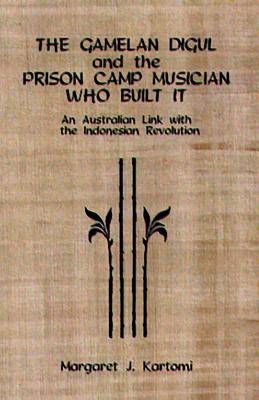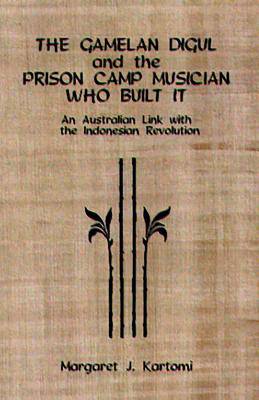
- Afhalen na 1 uur in een winkel met voorraad
- Gratis thuislevering in België vanaf € 30
- Ruim aanbod met 7 miljoen producten
- Afhalen na 1 uur in een winkel met voorraad
- Gratis thuislevering in België vanaf € 30
- Ruim aanbod met 7 miljoen producten
The Gamelan Digul and the Prison Camp Musician Who Built It
An Australian Link with the Indonesian Revolution
Margaret J KartomiOmschrijving
This is the story of a particular Javanese group of "matching" musical instruments called the gamelan Digul, and their creator, the Indonesian musician and political activist Pontjopangrawit (1893-ca. 1965). He was a superb Javanese court musician, who had entertained at the of king Paku Buwana X as a child. In this magnificent artistic environment he learned how to build gamelans, and also became a sought-after teacher. Involved in radical political activities, Pontjopangrawit was arrested in 1926 for his participation in the movement to free Indonesia from Dutch rule, and spent the next six years in the notorious Dutch East Indies prison camp at Boven Digul. Made in 1927 entirely from "found" materials in the prison camp, including pans and eating utensils, the gamelan Digul became a symbol for the independence movement long after Pontjopangrawit's own release in 1932. In the 1940s, it was transported to Australia, where the Dutch and their prisoners took refuge from the Japanese invaders. At first interned as enemy aliens by the Australian government, the ex-Digulists were finally released. Cultural activities within the Australian Indonesian community involving the gamelan Digul served to create sympathy and interest for Indonesia's independence, which was granted in 1945. Tragically, Pontjopangrawit himself was later arrested by the Indonesian goverment during the 1965 revolution, and died in custody. This book's musical and political discussions will interest all those concerned with Indonesian and Southeast Asian music, performing arts, history and culture as well as the beginnings of Australian-Indonesian friendship. Margaret Kartomi, AM, FAHA, Dr. Phil, is the Professor of Music at Monash University. She has published over a hundred articles and several books, annotated CDs and LP records on the music of various parts of Indonesia and other ethnomusicological topics.
Specificaties
Betrokkenen
- Auteur(s):
- Uitgeverij:
Inhoud
- Aantal bladzijden:
- 148
- Taal:
- Engels
- Reeks:
- Reeksnummer:
- nr. 16
Eigenschappen
- Productcode (EAN):
- 9781580460880
- Verschijningsdatum:
- 1/02/2002
- Uitvoering:
- Boek
- Formaat:
- Met stofomslag
- Afmetingen:
- 157 mm x 231 mm
- Gewicht:
- 408 g

Alleen bij Standaard Boekhandel
Beoordelingen
We publiceren alleen reviews die voldoen aan de voorwaarden voor reviews. Bekijk onze voorwaarden voor reviews.










